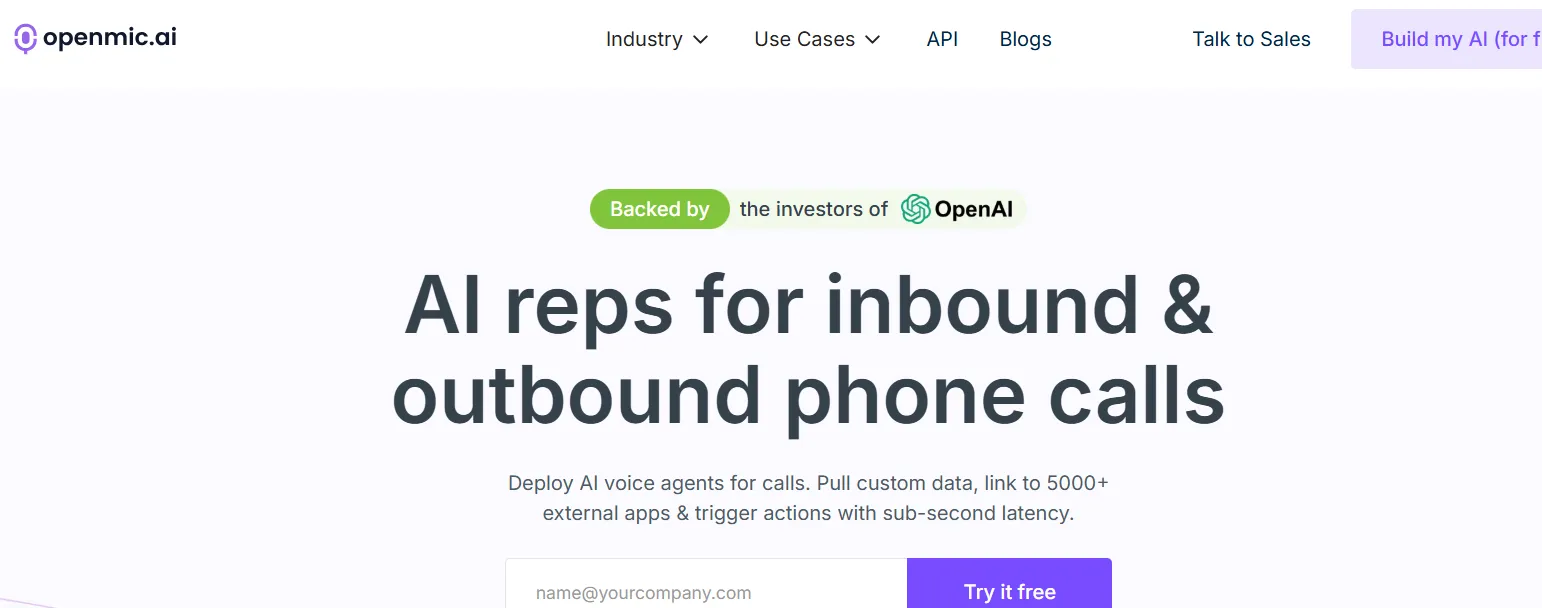The world of banking is undergoing a major transformation. With rising customer expectations and an ever-increasing demand for convenience, banks are turning to technology to meet the needs of today’s digital-savvy consumer. Among the most exciting advancements is conversational AI, which is changing the way banks interact with their customers.
Conversational AI is the backbone of smart virtual assistants, voice-powered banking systems, and intelligent chatbots. This technology helps banks provide fast, personalized service, streamline operations, and enhance customer satisfaction. In this blog, we’ll take a deep dive into how conversational AI is revolutionizing the banking sector and why it’s here to stay.
Understanding Conversational AI and Its Role in Banking

At its core, conversational AI is a combination of artificial intelligence (AI), machine learning (ML), and Natural Language Processing (NLP) technologies. These tools enable banks to engage with customers through automated conversations that mimic human interactions. With conversational AI, banking systems can manage everything from answering routine queries to processing transactions and offering personalized financial advice.
What makes conversational AI particularly valuable is its ability to simulate human-like interactions. Banks can use AI to automate services that typically require human input, thus allowing staff to focus on more complex tasks. Additionally, these systems are available 24/7, meaning that customers can get answers and resolve issues at any time of day or night.
The Impact of Conversational AI on Banking Efficiency
In the fast-paced world of banking, operational efficiency is key. Conversational AI brings several benefits in terms of improving efficiency, reducing costs, and delivering a better customer experience. Here’s a closer look at how conversational AI boosts operational efficiency in banking:
1. Customer Service Automation
Gone are the days when customers had to wait on hold to speak to a representative. AI-powered chatbots and virtual assistants now handle customer queries, like checking balances, transferring funds, or locating branches. By automating these simple tasks, banks can ensure quicker response times and reduce human error.
2. Fraud Prevention
One of the biggest concerns for customers is the security of their personal data. Conversational AI plays a crucial role in enhancing security by monitoring financial transactions for suspicious activity. For example, AI systems can automatically notify customers of potential fraud, helping prevent further loss. This not only keeps customers safe but also builds trust in the bank’s services.
3. Streamlining Loan Applications
AI can assist in the loan application process by verifying documents and analyzing customer eligibility in real-time. This significantly reduces the time it takes for customers to receive loan approvals, making the entire process more seamless and user-friendly.
Personalizing Customer Engagement Through AI
One of the most significant advantages of conversational AI is its ability to offer personalized services. With AI, banks can go beyond transactional services and engage customers with tailored financial advice and product recommendations. Here's how conversational AI enhances personalization in banking:
1. 24/7 Access to Banking Services
Virtual assistants powered by AI are available around the clock. Whether customers need help with their accounts, want to make a transaction, or just need information about products, they can access banking services anytime, from anywhere.
2. Customized Financial Recommendations
By analyzing spending behavior and transaction history, AI systems can offer personalized financial advice to customers. For example, an AI system could recommend suitable savings plans or investment opportunities based on the customer’s financial goals.
How Conversational AI Improves Customer Satisfaction
In today’s competitive banking environment, customer satisfaction is a top priority. Conversational AI helps banks create memorable customer experiences by offering quick, reliable, and secure services. Here’s how AI impacts customer satisfaction:
1. Faster Service
AI systems are designed to provide fast responses to customer inquiries. Whether it’s answering a question or processing a transaction, AI can handle customer requests instantly, improving service speed.
2. Enhanced Security
With AI, banks can offer advanced security measures such as biometric authentication and encryption to ensure customers’ sensitive data is safe. This builds trust and assures customers that their financial information is being handled securely.
3. Consistency and Accuracy
AI-powered chatbots and virtual assistants provide consistent and accurate responses to customer queries. This ensures that every customer receives the same level of service, no matter when they contact the bank.
The Roadblocks to Conversational AI Adoption in Banking
Despite its many benefits, implementing conversational AI in the banking industry is not without its challenges. Banks face several obstacles in fully integrating AI into their operations:
1. Legacy Systems
Many banks still operate on outdated systems that are not compatible with modern AI technologies. Transitioning to more flexible, cloud-based platforms is essential for the successful integration of conversational AI.
2. Data Security and Privacy
Handling customer data responsibly is a top priority for banks. With the introduction of AI, banks must ensure that AI systems comply with regulations such as GDPR and CCPA, and that they implement strong encryption and access controls to safeguard customer data.
3. Bias and Accuracy
AI systems rely on data to learn and make decisions. If this data is biased or inaccurate, the AI system can provide flawed responses. Ensuring that AI is trained on diverse and accurate data is critical to maintaining fairness and reliability.
To overcome these challenges, banks need to invest in the right infrastructure, data governance practices, and ongoing monitoring of AI systems.
The Future of Conversational AI in Banking
The potential of conversational AI in banking is immense. While the technology is still evolving, it’s clear that AI will play an increasingly central role in customer interactions in the years to come. Gartner predicts that by 2030, conversational AI will handle up to 90% of all customer interactions in the banking sector. This shows just how transformative AI will be in reshaping the customer experience.
In the future, AI will become even more sophisticated, allowing for more natural and human-like conversations. Banks that invest in AI now will be better positioned to lead the market and deliver top-tier customer experiences.
OpenMic: Getting Started with Conversational AI

If you’re ready to take your banking services to the next level, OpenMic.ai offers a range of innovative AI solutions. Their platform is designed to help banks improve customer interactions, streamline operations, and boost engagement.
Key Features of OpenMic:
- AI-Powered Voice Agents: Handle everything from customer support to appointment scheduling with ease.
- Seamless Integration: Connect with over 5,000 applications for efficient service across platforms.
- Industry-Specific Solutions: Tailored services for industries like healthcare, debt collection, real estate, and more.
- Advanced API Integration: Incorporate features like speech-to-text, text-to-speech, and multi-speaker analysis.
Visit OpenMic to learn how their advanced AI solutions can help your bank improve customer service and enhance engagement. To dive deeper into AI’s role in other sectors, such as debt collection, check out “Top 5 AI-Powered Debt Collection Software Solutions for 2025”.
Conclusion: Ready to Elevate Your Banking Experience with AI?
Conversational AI is revolutionizing the banking sector by enhancing operational efficiency, boosting customer satisfaction, and providing personalized services. While challenges exist, the future of conversational AI in banking looks bright. As AI technology continues to evolve, it will redefine the way banks interact with their customers, offering faster, more secure, and more efficient services. The banks that adopt this technology today will be better positioned to thrive in an increasingly competitive and digital-first banking world.
If you're looking to revolutionize your bank's customer service and improve operational efficiency, OpenMic is your solution. OpenMic provides state-of-the-art AI-powered voice and chatbot solutions that help you engage customers like never before. With seamless integrations, industry-specific tools, and advanced features, OpenMic is tailored to meet the unique needs of the banking sector. Also Explore this blog to Know more about OpenMic "The Debt Collection Industry and the Need for Automation in 2025 and Beyond"
Why to Choose OpenMic?
- AI-Powered Voice Agents: Automate customer interactions, manage inquiries, and process tasks efficiently.
- Seamless App Integration: Easily connect to over 5,000 applications, streamlining your workflow.
- Advanced API Features: Take advantage of speech-to-text, multi-speaker diarization, and more for precise and natural interactions.
Take the first step toward transforming your banking services with cutting-edge AI. Visit OpenMic to explore how we can help you enhance customer experience and streamline your operations today!
Explore related blogs
.png)
Voice AI for Mass Tort Lawyers: How Conversational AI Is Revolutionizing Case Intake & Client Engagement
.png)
Top 5 AI Answering Services for Law Firms in 2025 (24/7 Reception & Intake)
.png)
Top 5 White-Label Voice AI Platforms in 2025 (Best for Agencies & SaaS Providers)
Let AI Handle Your Phones So You Can Focus on Growth
Start your free trial and see how OpenMic’s AI voice agents can streamline calls, boost conversions, and deliver fast, 24/7 customer service — without hiring more staff.



.webp)



.svg)